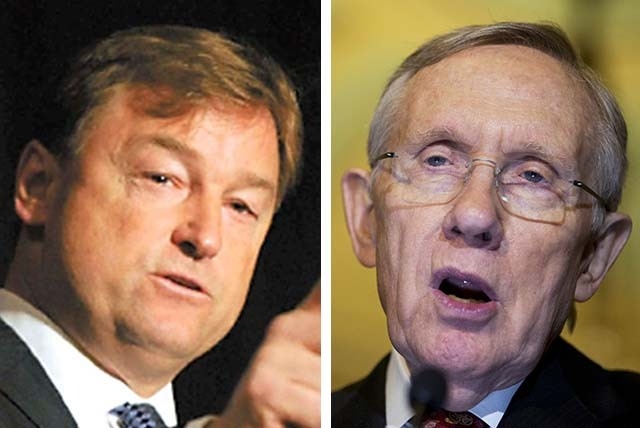New Senate bill would extend federal jobless pay 3 months
WASHINGTON — With backing from the White House, lawmakers are setting the stage for Congress in January to consider restoring payments to Americans whose unemployment checks are being cut off this month.
A bill that would extend emergency benefits for three months was introduced Wednesday by Sens. Jack Reed, D-R.I., and Dean Heller, R-Nev. Senate Majority Leader Harry Reid of Nevada has said he plans for the Senate to take up the issue when it returns to work after the holidays.
The Reed-Heller bill would make payments retroactive to Dec. 28, when the extended unemployment program ends for 1.3 million people who have been out of work for more than six months.
In Nevada, the cutoff is expected to affect 17,500 people who are collecting federal benefits after exhausting the basic 26-week tier of state-paid benefits. The state continues to have the highest jobless rate in the nation, at 9.3 percent, and job-seekers have been eligible to collect for up to a combined 73 weeks.
“This program has been, and continues to be, a crucial benefit to millions of American households all over the country and of nearly every conceivable demographic,” Reed said.
White House senior adviser Valerie Jarrett said Wednesday President Barack Obama would sign a three-month bill.
“We strongly support it and we think it will be bipartisan,” Jarrett said at a breakfast sponsored by Politico. “We’re hopeful that over the course of the next few weeks we’ll galvanize support for it.”
Reed, whose state’s jobless rate is 9.1 percent, earlier proposed a yearlong extension of jobless benefits. He said the latest bill would preserve benefits for three months “while Congress works out a comprehensive plan.”
“I am pleased to join Senator Reed on this legislation, which aims to help people across the nation who have fallen on hard times,” Heller said.
The cost of extending the program for three months is estimated at $8 billion, while continuing it for a year would cost roughly $25 billion.
The Reed-Heller bill would not offset the cost of a three-month continuation by raising revenues or making cuts elsewhere.
The issue of whether benefits should be paid for has traditionally been part of the debate over the jobless program, with Democrats arguing the benefits amount to “emergency” spending that do not need to be offset.
Contact Stephens Washington Bureau Chief Steve Tetreault at stetreault@stephensmedia.com or 202-783-1760. Follow him on Twitter @STetreaultDC.


















